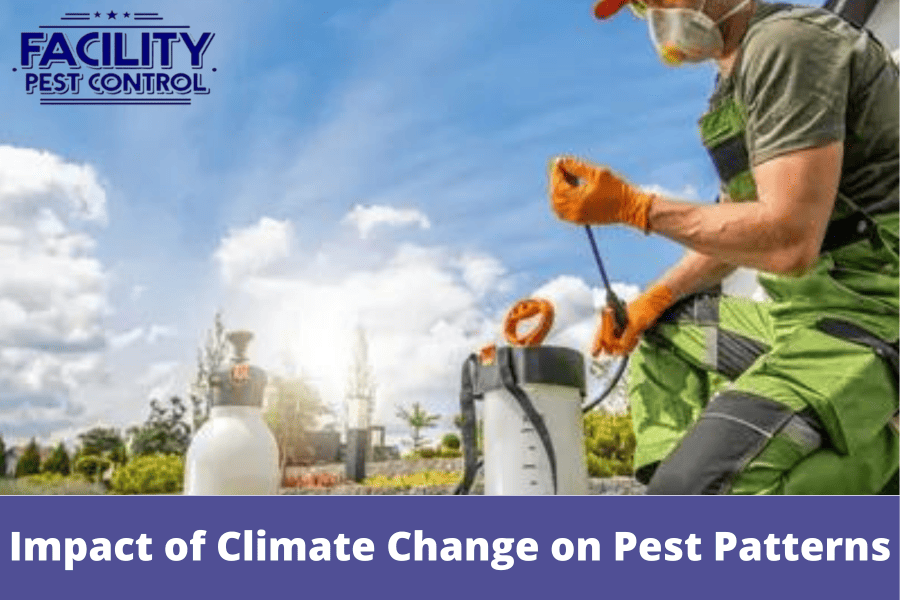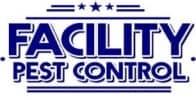As climate change reshapes our ecosystems, its effects on pest populations and behaviors become increasingly pronounced. This shift poses new challenges for home pest control services, demanding innovative strategies to tackle these evolving threats. This blog explores how climate change influences pest dynamics and the necessary evolution in pest management approaches.

Climate Change and Pest Patterns
Climate change is having a significant impact on the environment, especially on the temperature and precipitation patterns. While some pests thrive in these changing conditions, others are losing their habitats. This leads to increased pests like mosquitoes, ticks, and crop-damaging insects, posing a threat to human health, food security, and biodiversity.
Mosquitoes, for example, are moving to new places as temperatures rise, increasing disease transmission of malaria, dengue fever, and the Zika virus. Changes in rainfall patterns also affect rodent populations, which is a problem for urban and rural areas.
Moreover, climate change is changing the life cycles of pests, causing them to reproduce faster and survive longer. This makes it harder to control them, which is why we need to develop new strategies to reduce pest-related risks.
Adapting Extermination Strategies
The changing threats caused by climate change need an integrated strategy to control pests. As bugs adapt their behavior to new environments or acquire resistance, traditional pest management techniques, like chemical pesticides, may no longer be effective. Therefore, integrated pest management (IPM) strategies, emphasizing a holistic and sustainable approach, are gaining prominence.
Biological Control
Harnessing natural predators and parasites to regulate pest populations offers a sustainable alternative to chemical pesticides. Introducing beneficial organisms, such as parasitic wasps or predatory insects, can help maintain ecological balance and reduce reliance on synthetic chemicals. Additionally, employing microbial agents like Bacillus thuringiensis (Bt) for targeted pest control minimizes environmental impact while preserving beneficial insects and non-target species.
Habitat Modification
Adapting landscapes to discourage pest infestations involves modifying habitats to make them less hospitable to pests. This approach encompasses techniques such as habitat diversification, crop rotation, and using cover crops to disrupt pest breeding cycles and reduce their reliance on specific host plants. Furthermore, implementing water management practices to minimize stagnant water accumulation helps mitigate mosquito breeding in urban and suburban areas.
Precision Technologies
With technological advancement, pest control has become more accurate and efficient. Data analytics, predictive modeling, and remote sensing are the tools that pest control experts use to keep an eye on pest numbers and make necessary adjustments. They can predict pest outbreaks by analyzing environmental data and determining how to allocate resources and intervene.
Community Engagement and Education
Empowering communities through education and outreach programs fosters collaboration and collective action in pest management efforts. Informing the public about the connections between climate change, pest dynamics, and public health can inspire them to take preventative actions and reduce their vulnerability to pests and insecticides. Moreover, promoting sustainable practices, such as organic farming and habitat conservation, cultivates resilience to climate-related challenges and fosters ecological stewardship.
The Importance of Professional Pest Control Services
The complexity of pest management in the context of climate change underscores the importance of professional pest control services. These professionals have extensive experience in pest control and access to cutting-edge tools and resources. Professional services are adept at implementing IPM strategies and customizing solutions based on specific environmental conditions and pest pressures. They offer:
Expert Assessment and Monitoring
Professionals conduct thorough assessments to identify pest species, understand their behavior, and monitor their populations. This enables targeted interventions and reduces unnecessary pesticide use.
Customized Pest Management Plans
Based on the assessment, pest control professionals develop tailored plans integrating biological control, habitat modification, and precision technologies. These plans are designed to address climate change’s unique challenges and minimize environmental impact.
Ongoing Support and Adaptation
Professional services provide continuous monitoring and support, adjusting strategies to respond to changing pest dynamics. This ensures the long-term effectiveness and sustainability of pest control efforts.
Conclusion
The impact of climate change on pest patterns presents unprecedented challenges that require innovative and integrated extermination strategies. As pests adapt to changing environmental conditions, the need for advanced, sustainable approaches to pest management becomes more crucial. Integrated Pest Management (IPM) strategies, including biological control, habitat modification, precision technologies, and community engagement, are at the forefront of adapting to these evolving threats.
Professional pest control services, like Facility Pest Control, are vital in implementing these strategies effectively. With expert assessment, customized management plans, and ongoing support, we ensure that your pest control needs are met with the utmost efficiency and minimal environmental impact. Facing the challenges of climate change demands proactive and informed action.
Reach out to Facility Pest Control today to safeguard your home, business, and community against the shifting dynamics of pest populations. We can foster a healthier, more sustainable environment for future generations.
